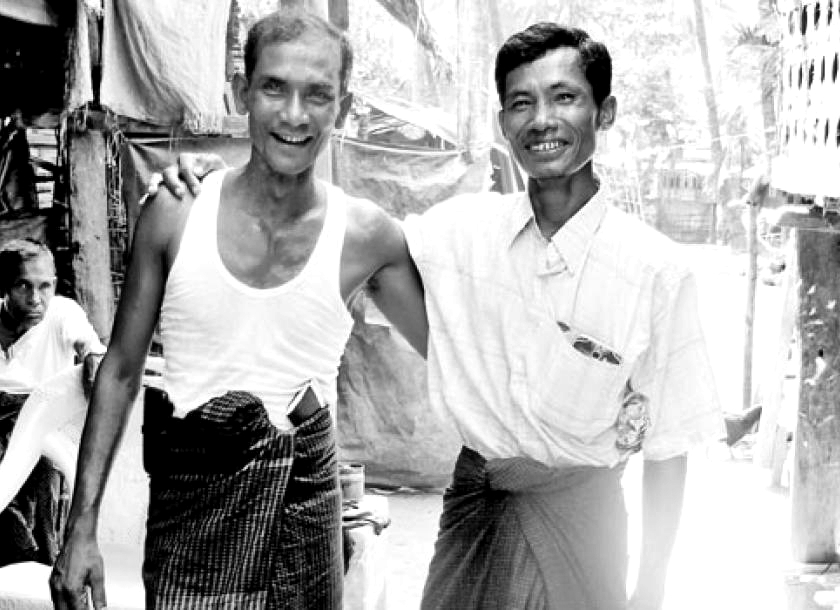The Voice of Some Rakhine
By Aman Ullah
Arakan, in fact, a continuation of the Chittagong plain was neither purely a Burmese nor an Indian Territory until 18th century.
Culturally, socially, economically and politically the peoples of Arakan were independent for centuries. Hinduism and Buddhism spread from India, whereas Islamic civilization began influencing Arakan from the 7th century. As such, her relation with western Muslims states is millennia-old.
Across the last two thousand years, there has been great deal of local vibrancy as well as movement of different ethnic peoples through the region. For the last millennium or so, Muslims (Rohingyas) and Buddhists (Rakhines) have historically lived on both side of Naaf River, which marks the modern border with Bangladesh and Burma. In addition to Muslims (Rohingyas) and Buddhists (Rakhines) majority groups, a number of other minority peoples also come to live in Arakan, including Chin, Kaman, Thet, Dinnet, Mramagri, Mro and Khami etc.
The Muslims (Rohingyas) and Buddhists (Rakhines) had been peacefully coexisting in Arakan over the centuries. Unfortunately, the relation between those two sister communities began to grow bitter at instigation of the third parties, during the long colonial rule of more than two centuries. The anti-Muslim pogrom of 1942—in which about 100,000 Rohingya were massacred, 50,000 of them were driven across the border to the east Bengal some parts of Muslim settlements were devastated—have caused rapid deterioration in their relation.
Today, the greater number of Rakhines, under the patronization of the successive regime, is hostile to Rohingyas. They are main instruments of Rohingya oppression over the decades. Even many Rakhines today claim Arakan to be the ‘historic land of Rakhine Buddhists’. Denying the existence of Rohingya, they state that Arakan belongs to them alone and the Rohingyas have nothing to do with it and have no right to use the word ‘Arakan” and even ‘Rohingya”. This chauvinistic claim of ‘exclusive ownership’ of Arakan by the Rakhine is the root cause of the problem in Arakan causing constant communal violence and tension between the two major communities.
The following are the expression of some Rakhine gentlemen from Maungdaw, Buthidaung and Rathedaung Townships, which was written to the Rakhine Welfare Journal in 1997.

